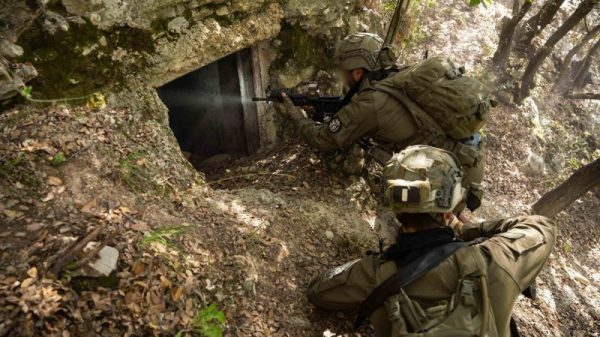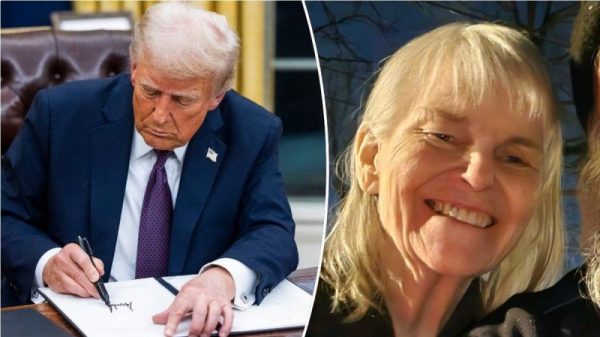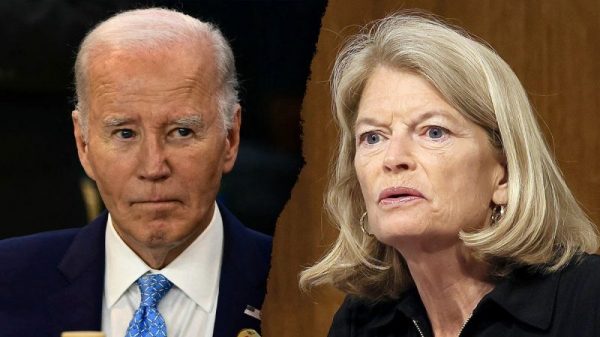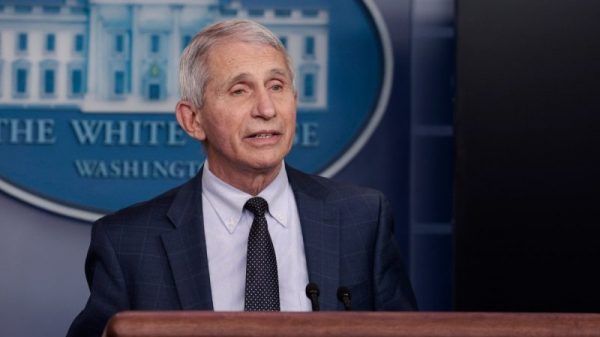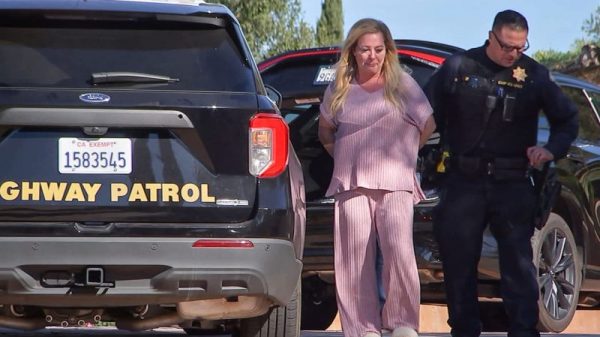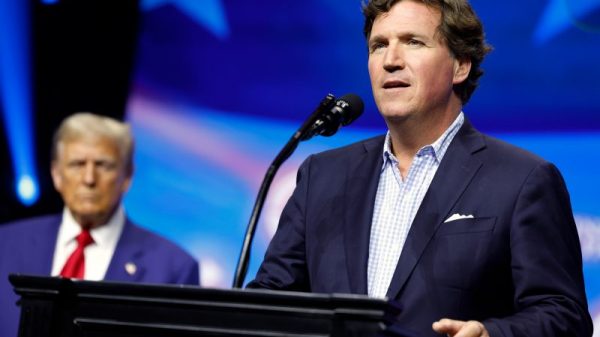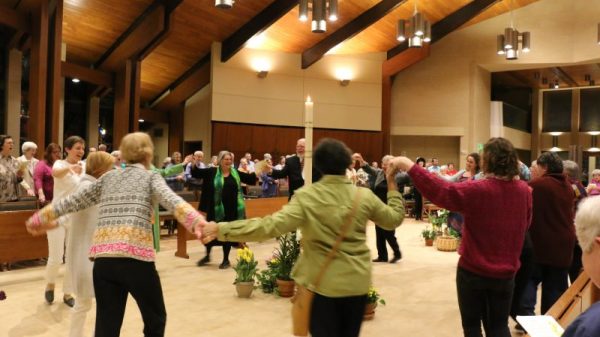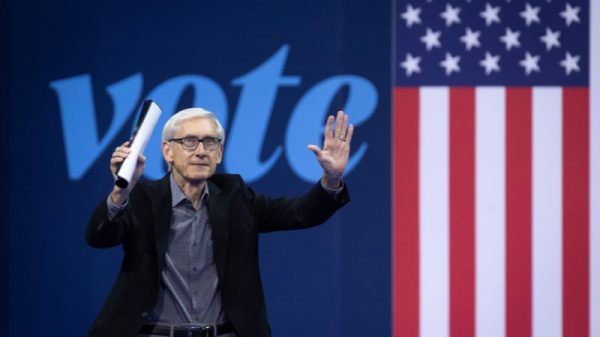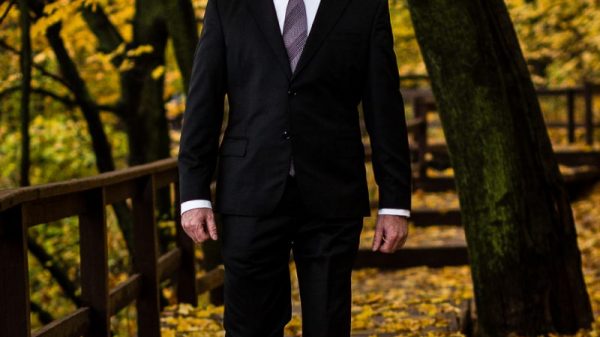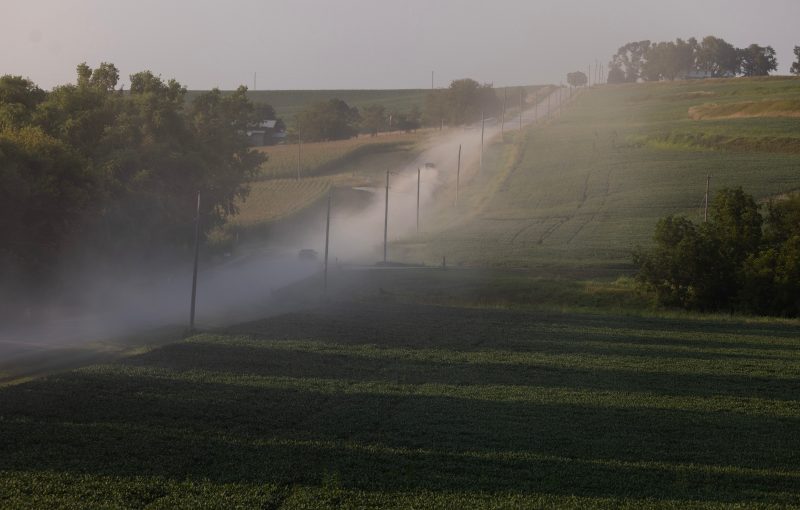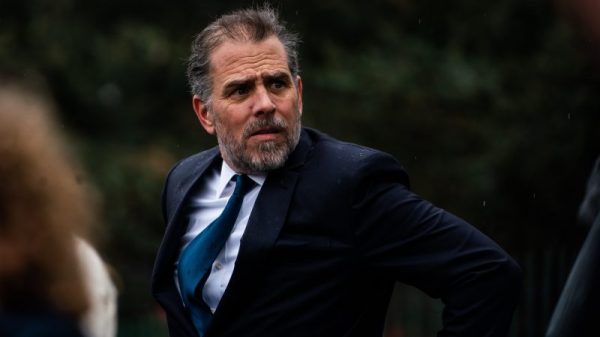VALENTINE, Neb. — Beyond the Badlands, deep within the undulating landscape of the Sandhills, this speck of a city where Tim Walz spent a decade of his childhood rises abruptly out of the vastness.
It is as remote as anywhere in the Midwest, an island of civilization in a Rhode-Island-size county with just 6,000 people and 184,000 beef cows. But as Walz entered his freshman year of high school, his life seemed storybook large.
Walz played football, basketball and golf, sometimes riding in a bus hundreds of miles to compete against other schools, classmates said. He enjoyed a life of stability and privilege as a child of James Walz, who had one of the most important jobs in town as school superintendent, and Darlene Walz, a homemaker. Within the confines of Valentine, at least, Tim Walz had it all.
But after his first year at Valentine High School, Walz was gone — headed to an even more remote, smaller community called Butte, where his mother’s family had lived for generations.
Much later, friends would learn why: His father was seriously ill with lung cancer, and the family needed help to care for him.
In his later political journey from Congress to Minnesota governor and now the Democratic vice presidential nominee, Walz has often spoken of his small-town upbringing — including at his convention introduction on Wednesday in Chicago, when he walked out to John Mellencamp’s “Small Town” and nodded to his time in Butte.
But those speeches have rarely captured the depth of the challenge Walz faced, according to classmates and family members, as his teenage years were upended and his father’s illness plunged his family into medical debt and led Walz into the Army National Guard.
Walz has said the events fostered his views on life and death, underscored the obligations of a community to help those in need, and ultimately convinced him to get into politics — shaping an outlook that he is now putting at the center of his campaign message as Vice President Kamala Harris’s running mate. As Walz has embraced his roots in the rural Midwest on the trail, he is also championing policies that he has said would make health care a basic human right by easing medical debt for families.
“It shaped me later in life and certainly shaped me as it deals with health care,” Walz has said of his father’s death.
In some ways, Walz’s small-town childhood offers a contrast from that of his Republican counterpart, Sen. JD Vance of Ohio. In his best-selling book, “Hillbilly Elegy,” Vance wrote about the decline of the Ohio industrial town where he grew up, a heroin-using mother and an absent father, and finding refuge by visiting his grandmother in a small Kentucky town where his dysfunctional and often-violent family had roots.
As Walz has told the story, his childhood began as an idyllic time shaped by community values in tiny Nebraska towns and the closeness of family — but then took a destabilizing turn that would set the course of the rest of his life.
“My father died [after] a long illness, and my mother ended up having to go back to work in her 60s,” Walz said in an oral history for Veterans History Project. “There was no money.” In fact, he said in his convention speech, there was “a mountain of medical debt.”
***
Walz was a child of rural Nebraska, moving regularly as his father jumped to new postings as a school superintendent. Born in 1964 in West Point and baptized at St. Wenceslaus Catholic Church in Dodge — both small farming towns in the eastern half of the state — he moved hundreds of miles west with his family to Valentine in 1969. His parents were Democrats in an overwhelmingly Republican town, although locals said politics was not nearly as divisive then as today. The Walz family set down roots and created traditions in the city of 2,600, heading to Frosty’s for a shake, or to the mill pond for fishing, or hiking in the nearby canyons and floating down the Niobrara River.
Walz played football on high school fields across the state, as well as basketball in a second-floor gym with a stained wooden ceiling that could have been the setting for the movie “Hoosiers,” with bleachers seating about 400 people. The teams were small and not always competitive, but aside from the cattle auction and the county fair, high school games were among the biggest attractions in town. Walz was considered a standout for the local Badgers because of his size and determination, classmates said, although there were initially only 19 football players, which shrank to 14 due to injuries. The freshman team with Walz won only one game, according to his yearbook, leaving the coach after one particularly brutal loss to note: “Even though we got beat 44-0, they never did give up.”
As Walz has told it, he spent summers working at a ranch outside town.
“I grew up summers working Everett Brown’s Hereford ranch about 60 miles from anywhere, working cattle, building fences, putting up hay,” Walz said earlier this year. At the end of the day when he was “a young 14-old,” he said, he retired to a bunkhouse where other ranch hands were playing cards and cursing, while he would read National Geographic magazines and “really started to understand how big the world is.”
Everett Brown’s son, Greg Brown, said in an interview that he recalled Walz working at the ranch and he confirmed that they kept National Geographics in the bunkhouse. But he said that Walz only worked at the ranch for one summer, and then only for a few weeks.
“He got tired of it and he left,” Greg Brown said. “My dad hauled him to town,” about 20 miles to Valentine. “My dad was pretty good at taking in high school kids from Omaha and Valentine. He made them work and if they didn’t, then he took them to town.”
Walz declined an interview request.
From one perspective, life in Valentine was isolated; it was a three-hour drive over the Sandhills and across the Badlands to get to the comparative metropolis of Rapid City, S.D. But Valentine was just large enough, with a vibrant main street and a thriving culture, to feel like more than a little city, Walz’s classmates said. And Walz, as an athlete and son of an important local official, had standing among teens in the town.
“There was a social hierarchy, country kids wearing wranglers and cowboy hats, city kids wearing sneakers,” recalled classmate Brad Rodgers, a veterinarian who said his elementary education was in a remote one-room schoolhouse. “Tim wore sneakers; he hung out with the ‘cool’ kids.”
Little of that vibrant small-town life awaited Walz, then 15 years old, and his family as they left Valentine and moved to Butte on a summer day in 1979.
***
The route from Valentine to Butte is a two-hour drive across the crop fields and ranch lands of northern Nebraska, with hardly a commercial establishment in sight, along two-lane roads, some of them unpaved, until arriving at the town of a few hundred people surrounded by farm fields.
Walz’s mother’s family had deep roots in Butte. Her brother, Jerome Reiman, owned a farm there, as did other relatives. Walz’s parents later told the family they had always intended to move to Butte, but James Walz’s illness sped up the plan. The extended family in Butte would help care for him and his children, and they hoped the slower pace of life would be good for James’s health and also enable him to be superintendent of a smaller school.
The Walz family moved into a two-story house, a few blocks off a quiet business district. The house had been moved from a nearby town and placed on a corner, a block from a red-brick building with the words “High School” over the entry. As school began in the fall, James Walz took over as superintendent and Tim Walz joined a sophomore class of about two dozen, half of whom Walz has said were his cousins.
Everyone in Butte was family of some sort, whether it was by blood or proximity. But it was clear to Walz’s family that he had no intention of following his relatives into the agriculture business.
“He wasn’t into farming at all,” said Reiman, Walz’s 84-year-old uncle who stressed that he saw nothing wrong with Walz’s view, figuring that his nephew wanted to become a teacher like his father.
Lynita Fry, a classmate of Walz’s, said life in the close-knit town provided a shelter to the family in a difficult moment: “You were raised by the whole town. … If you did anything, by the time you got home, your mom already knew about it. You could go to anybody’s house because they knew who you were. Everybody was like a big family. … We were pretty protected from a lot of things.”
Walz’s life settled into a new pattern, as he went to classes and played sports on even smaller teams. He dreamed of going to college, but as his father became sicker, the family worried about how to pay the bills. Butte had limited nearby medical care, and the family began taking him 234 miles southeast to Omaha for treatment.
Walz soon decided to follow his father, a veteran of the Korean War, into the military. The pair drove an hour west to Springview, met a farmer who was a lieutenant in a local unit, and then signed the paperwork, Walz later said in an oral history.
“You picked up your high school junior and took him, and we were in,” Walz said. He joined the National Guard and took his first flight, traveling to Fort Benning in Georgia for basic training. It was, Walz said, a “piece of America.”
Or, as Walz more colorfully recalled it in a speech: “Two days after my 17th birthday, my chain-smoking, Korean War veteran father took me to join the army.”
Walz found refuge in football. Even though Butte High School’s team was small, it had enough boys to put 11 players on the field. The team went 8-1 in Walz’s senior year and he was an all-star, playing guard or tackle, according to his former coach, Kevin Kirwan.
“He loved football,” Kirwan said. “He was tough. I always referred to him as the kid that could spit dirt, wipe sweat from his eyes, wipe the blood off his arm and want more.”
Everybody knew that James Walz was increasingly ill, Kirwan said, and townspeople pitched in to help, bringing food and doing whatever else was needed for the family.
After graduating from high school, Walz used the GI Bill to enter Nebraska’s Chadron State College, 262 miles west of Butte, while his father continued treatment for lung cancer.
One day in January 1984 while Walz was at college, he received an urgent call to come to the hospital. His father had gone into a coma.
“I remember sitting in that hospital room, no one really knowing what to do … because the question was about keeping him on life support, and having to make decisions about your dad,” he recalled during his 2018 campaign for governor.
James Walz died at 54 years old and was buried in Butte.
In his convention speech, Walz said in reference to the medical debt: “Thank God for Social Security survivor benefits.” But in other settings, Walz has said that wasn’t nearly enough. He has said that the final week of his father’s time in the hospital was so expensive it “cost my mom a decade of having to go back to work” at a local nursing home. Walz and his campaign did not respond to questions from The Washington Post about whether the family had medical insurance and the cost of James Walz’s final week at the hospital.
Walz was in despair. He briefly lost the incentive to remain in college. Feeling “ripped up” over his father’s death, as he told the newspaper then called the Minneapolis Star Tribune in a 2018 interview, he wandered around the South, traveling to Houston and Jonesboro, Ark., where he got a factory job building tanning beds.
To those who know him, this is considered his darkest period — but also a turning point that later provided fuel for Walz’s political foundations after he resumed classes, joined student government and then enrolled in a program to teach in China.
Walz saw the values of small-town America in the tragedy as his mother also was bolstered by support from the Butte community — an experience that has become a touchstone for him when explaining why the family remains so devoted to the town.
“Being a single mom and having to figure out how to pay those bills, to get your kids to go to school, and restructuring your life is quite an undertaking,” said Julie Walz, his sister-in-law.
“The interconnectedness and how people help each other there is quite remarkable,” she said, recalling a similar experience after her husband — Walz’s younger brother, Craig — died in 2016 when a tree fell on his tent on a camping trip. “Having that support system in place, when something like that happens to your family, was something that cannot be replaced.”
Michael Bartlett, who grew up in Valentine and lifted weights with Walz in the basement of his home in Chadron, said that as he has watched Walz ascend onto a national stage, he is certain that his move to Butte and his father’s death was a defining moment.
“Knowing his dad is terminal, it changes your perspective on lots of things; it forces your hand, to grow up a little bit,” Bartlett said. “He had a maturity level at an early age. That was due to losing his dad.”
As Walz has charted an unusual path from teacher and football coach to congressman and Minnesota governor, he has pointed to his mother’s struggles with medical debt as one of the foundations of his political career. Earlier this year, he signed the Minnesota Debt Fairness Act, which requires that debt passed to a spouse after death be forgiven — echoing the situation his mother faced.
Shortly after Walz was named as the vice-presidential candidate, he and Harris filmed a conversation where one of her questions was: “Tell me about your dad.”
As Walz recounted the story of his father’s death again, he said it shaped him deeply to this day.
“We’re fine pulling ourselves up from our bootstraps,” Walz told Harris. “We had no boots.”
Aaron Schaffer contributed to this report

